11 Melatonin Alternatives for Sleep
Summarize
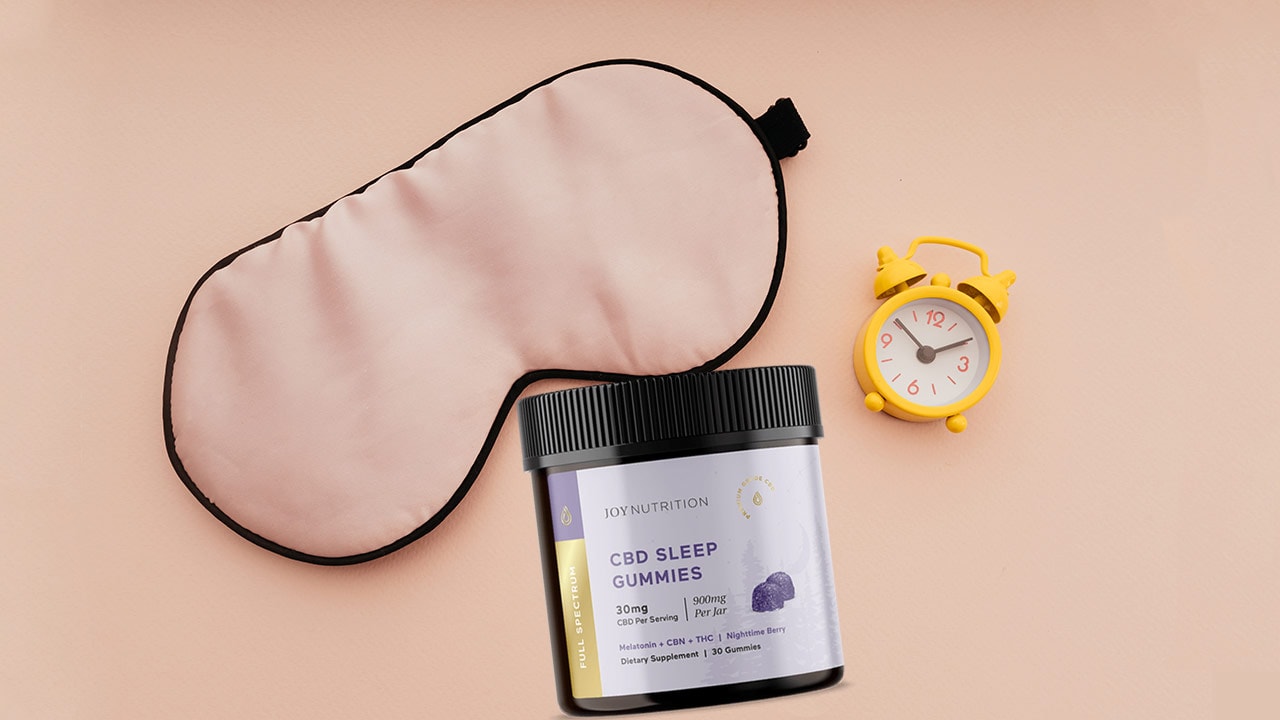
Approximately 30% of American adults have some forms of sleep issues, and 35.5% get fewer than the recommended seven hours of sleep each 24 hours. It is not surprising that people are trying different products that may improve sleep quality. One popular sleep product is the melatonin supplement. However, due to side effects, not everyone can take melatonin, and it is also not always effective for others. Alternatives to melatonin for adults include CBD and CBN products, herbal supplements, and lifestyle changes.
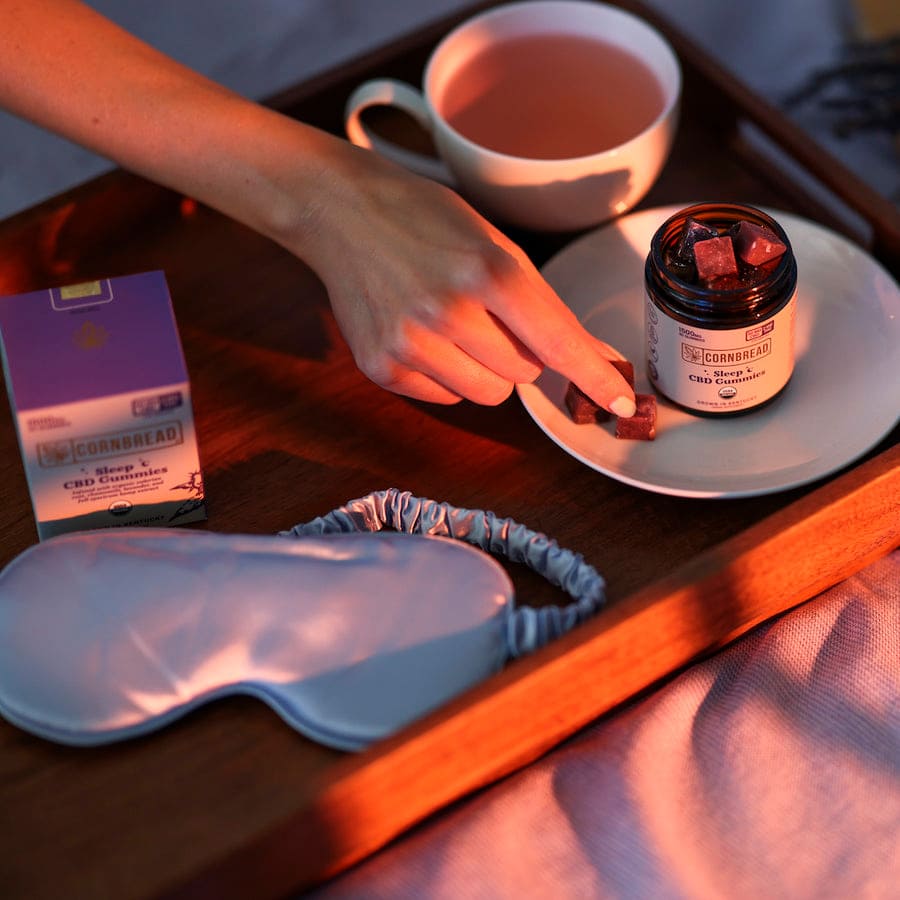
TL;DR (Too Long; Didn’t Read):
Melatonin is a hormone that manages the sleep-wake cycle, primarily triggered by light exposure. When sleep quality is poor, it is often an indication that the natural hormone is out of balance. Some of the alternatives to melatonin include herbal supplements, amino acids and cannabinoids like CBD and CBN. You can also make lifestyle changes that support quality sleep, like avoiding napping and regularly exercising.
Table of Сontents
What is Melatonin?
Melatonin is a hormone naturally produced by the brain’s pineal gland. The gland releases melatonin into the bloodstream to regulate sleep cycles. The sleep cycle is one of the circadian rhythms that naturally follows a 24-hour cycle, with the process responding to dark and light. The pineal gland secretes the most melatonin as it gets darker, and the amount of melatonin decreases as it gets lighter.
Some factors can disrupt melatonin production, leading to poor sleep quality. These include aging, night shift work schedules, exposure to light before bedtime, and sleep conditions like apnea.
People take melatonin supplements in search of better sleep. Synthetic melatonin is made in a laboratory today and is considered safe. However, not everyone can take melatonin; some prefer to take a natural sleep aid without melatonin and avoid synthetic supplements.
Why Would You Not Want to Take Melatonin?
There are several reasons why you would not want to take melatonin. One is simply that it may not work. Following are additional concerns about melatonin supplements.
- Some people, especially seniors, may experience lingering effects, like daytime drowsiness.
- Melatonin may interact with some prescription medicines, including medicines that slow blood clotting, high blood pressure, immunosuppressants and diabetes medicines.
- Melatonin may cause an allergic reaction in some cases.
- Melatonin may lead to experiencing side effects that include nausea and dizziness.
The Best Melatonin Alternatives
Alternatives to melatonin include a range of herbal supplements, CBD and CBN products and other approaches, like aromatherapy. The following are 11 top melatonin substitutes or strategies for promoting good sleep. Some options, like CBD and CBN plus an herb like ashwagandha or chamomile, may be sold as a blend.
1. Valerian root
Valerian root has been used for centuries as a sleep aid. Research has found it may help you fall asleep faster, wake up less often and get higher quality sleep. However, it is still not known what precisely is in valerian that promotes sleep. Since it consists of several chemical elements, the current theory is that the multiple elements act synergistically or each acts independently.
2. CBD and CBN
People have found CBD, extracted from the hemp plant, is an effective compound for improving sleep. Clinical studies support these results. One study found that taking 50 mg of CBD daily for eight weeks significantly improved sleep quality.
CBN is another cannabinoid extracted from the hemp plant. Studies have found that CBN may also help people fall asleep quicker and longer. All-natural CBD and CBN for sleep may contain other plant ingredients like herbs supporting sleep quality and are available as a sleep aid without melatonin.
3. Chamomile
Chamomile is taken for many reasons, including improving sleep. There is not much research on chamomile’s ability to reduce sleep issues. One review of five studies found it might improve sleep quality but experiencing sleep issues if taken for at least four weeks. One of its drawbacks is that people with plant allergies are more likely to be allergic to chamomile.
4. Lavender
Lavender is a popular herb used in aromatherapy. Researchers report it may help promote relaxation, but once again, they have not reached a definitive conclusion.
5. Passion Flower
Passionflower is another herb that may help with calm and relaxation. Passionflower supplements are sold as sleep aids, but research on this herb is limited. There is insufficient clinical proof to say it delivers the suggested effects.
6. Ashwagandha
Ashwagandha is an herbal supplement that has been found to help people fall asleep faster and get more uninterrupted sleep. Its main beneficial ingredient is withanolides, which may promote a feeling of calm.
7. L-Theanine
L-Theanine is one of tea’s natural ingredients. Some studies have found that it may improve sleep by helping to calm the mind. It is an amino acid that affects neurotransmitters. Its interaction with several neurotransmitters promotes relaxed brain activity and may improve sleep by increasing alpha brain waves, which are associated with drowsiness and relaxation.
8. L-Trytophan
Tryptophan is an amino acid that clinical studies have documented as a potential sleep aid. It is a precursor to serotonin, and the process of tryptophan conversion to serotonin produces the byproduct melatonin. Increasing serotonin levels may increase sleepiness.
9. 5-HTP
Produced as a chemical byproduct from tryptophan, 5-HTP decarboxylation produces serotonin, which is then transformed into melatonin. The naturally occurring amino acid may positively impact sleep through its action in the brain, helping people fall asleep faster and sleep deeper. Once again, the research is limited.
10. Aromatherapy
Aromatherapy uses essential oils derived from plants. Vapors or scents are inhaled to promote relaxation. Research has found that some fragrances may improve the time it takes to fall asleep, sleep quality and quantity.
11. Relaxation techniques
Relaxation techniques include practices like meditation and mindfulness. They take practice and are often included in cognitive behavioral therapy. Guided meditation sessions are available on YouTube for free. Learning to relax can make falling and staying asleep easier. Combining these techniques with an all-natural product like CBD is a healthy strategy for improving sleep.
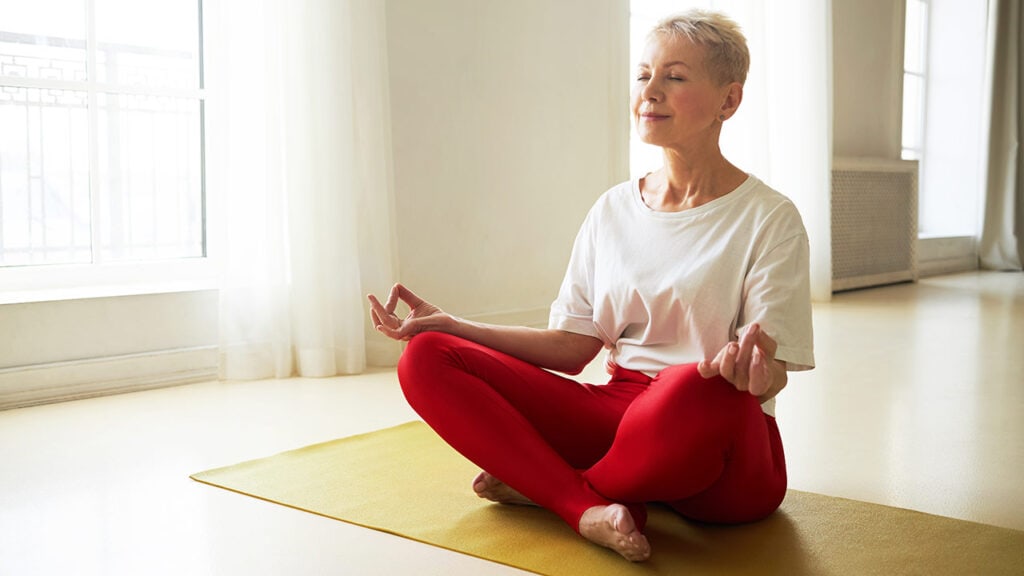
Lifestyle Suggestions for Melatonin Replacement
Making lifestyle changes, in addition to taking any compound like CBD or herbal supplements, will promote good health and make it more likely that sleep quality will improve. Sometimes, the inability to fall and stay asleep is driven by daytime behaviors, like lack of exercise. Changing the negative behaviors or adding positive ones can help.
- You can maintain a consistent sleep schedule by going to bed and waking up simultaneously and adhering to the schedule seven days a week.
- Avoid exposure to bright artificial light emitted by computers, smartphones, and television screens at least an hour before bedtime.
- Exercise regularly but not too close to bedtime.
- Do something you enjoy before bedtime, like reading a book or a hobby.
- Avoid consuming any stimulants in the evening, like coffee and caffeinated sodas.
- Alcohol reduces REM sleep, so do not drink any alcohol four hours before bedtime to give your body time to metabolize the alcohol.
- Allow several hours between the final meal of the day and bedtime, especially if eating a large meal.
- Keep your bedroom dark and quiet for better sleeping conditions.
- Take a warm bath or shower before bedtime.
- Avoid taking naps during the day, but if you nap, keep it to no more than 20 minutes and take it in the early afternoon.
- Use a white noise machine to mask background noises that are disrupting sleep.
- Use a good mattress, comfortable pillows, and good sleep posture.
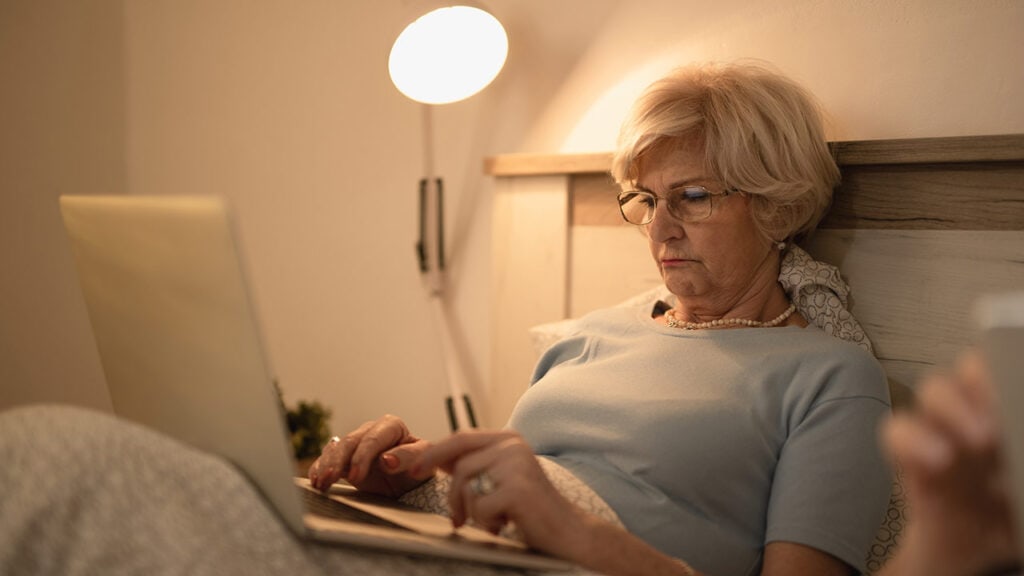
Also, suppose you continue to have sleep quality issues even after making lifestyle changes and taking CBD for sleep or an herbal supplement or believe you may have a sleep disorder like sleep apnea. In that case, it is important to talk to your doctor.
FAQs
What are natural alternatives to melatonin to help with sleep?
Some alternatives to melatonin to improve sleep quality include herbal supplements. Some of the most popular herbal supplements are valerian root, chamomile, passion flower and lavender. Several amino acid supplements may also support sleep quality. They include L-theanine, L-Tryptophan and 5-HTP, which are naturally sourced from food and milk or produced synthetically. Another natural sleep aid without melatonin available today is CBD and/or CBN, extracted from the hemp plant. CBD and CBN sleep products are available in various forms, including gummies, oils and capsules.
Are there any side effects associated with using melatonin?
Some people do experience side effects from melatonin. Side effects include daytime drowsiness, interactions with certain prescription medicines, allergic reactions, dizziness and nausea.
What are the best things to help you sleep?
The best things to help you sleep are a combination of things. Using a natural product like CBD, which may also contain botanicals, may help improve sleep quality. Any use of a natural sleep aid without melatonin to help fall and stay asleep can be supplemented with lifestyle changes. For example, you can begin exercising regularly, avoid taking naps, stop using computers and smartphones at least an hour before bedtime and find ways to stay calm, to name a few.
Conclusion
You have many options when looking for a melatonin-free sleep aid. Before taking any sleep product, it is wise to consult with your doctor. Getting a good night’s sleep is important for general health and quality of life. You can take many steps to make it easier to fall asleep, stay asleep and wake up refreshed.
Sources
- https://www.ncoa.org/adviser/sleep/sleep-statistics
- https://www.nccih.nih.gov/health/melatonin-what-you-need-to-know
- https://ods.od.nih.gov/factsheets/Valerian-HealthProfessional/
- https://pubmed.ncbi.nlm.nih.gov/36149724/
- https://pubmed.ncbi.nlm.nih.gov/37836465/
- https://www.sleepfoundation.org/sleep-aids/cbn-for-sleep
- https://www.nccih.nih.gov/health/chamomile
- https://www.nccih.nih.gov/health/lavender
- https://www.nccih.nih.gov/health/passionflower
- https://www.sleepfoundation.org/sleep-aids/ashwagandha
- https://www.sleepfoundation.org/sleep-aids/l-theanine-for-sleep
- https://academic.oup.com/nutritionreviews/article/80/2/306/6263432
- https://www.webmd.com/vitamins/ai/ingredientmono-794/5-htp
- https://www.sleepfoundation.org/bedroom-environment/how-smell-affects-your-sleep
- https://www.nccih.nih.gov/health/sleep-disorders-what-you-need-to-know
- https://www.sleepfoundation.org/nutrition/alcohol-and-sleep
Share this post


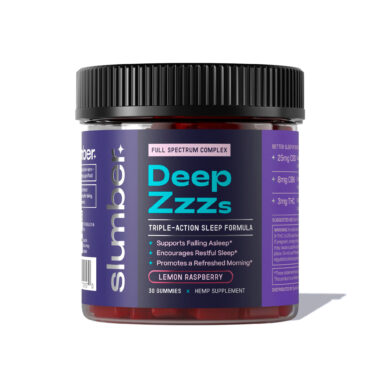
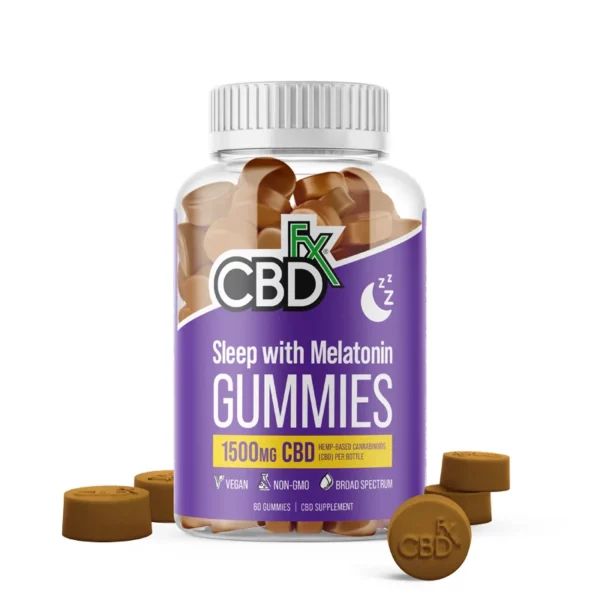
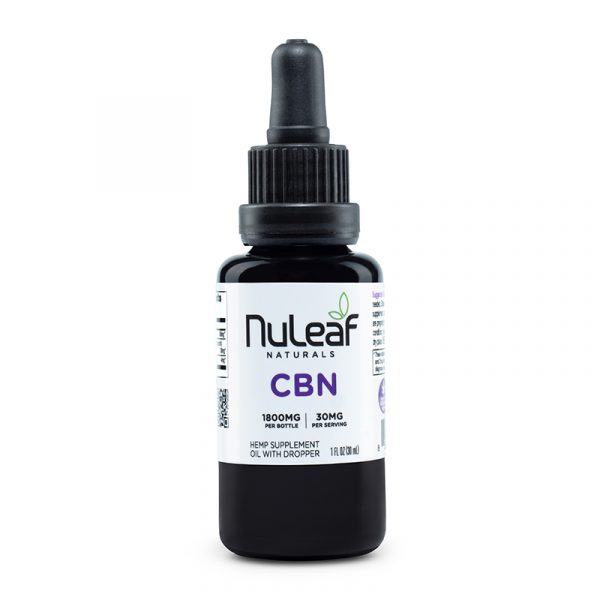
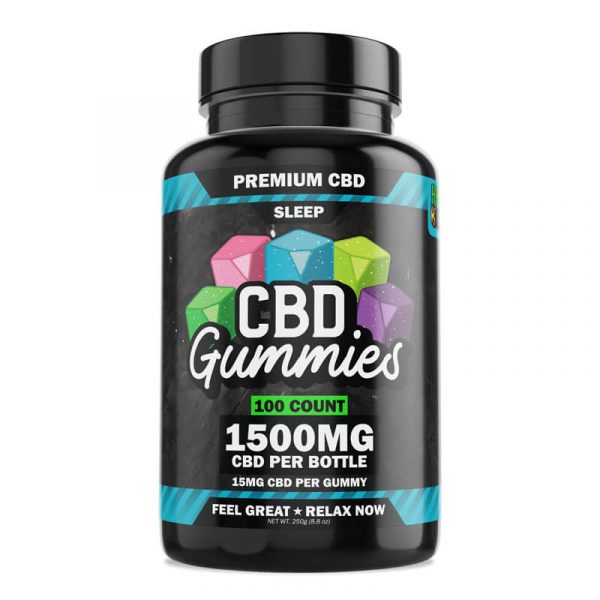
0